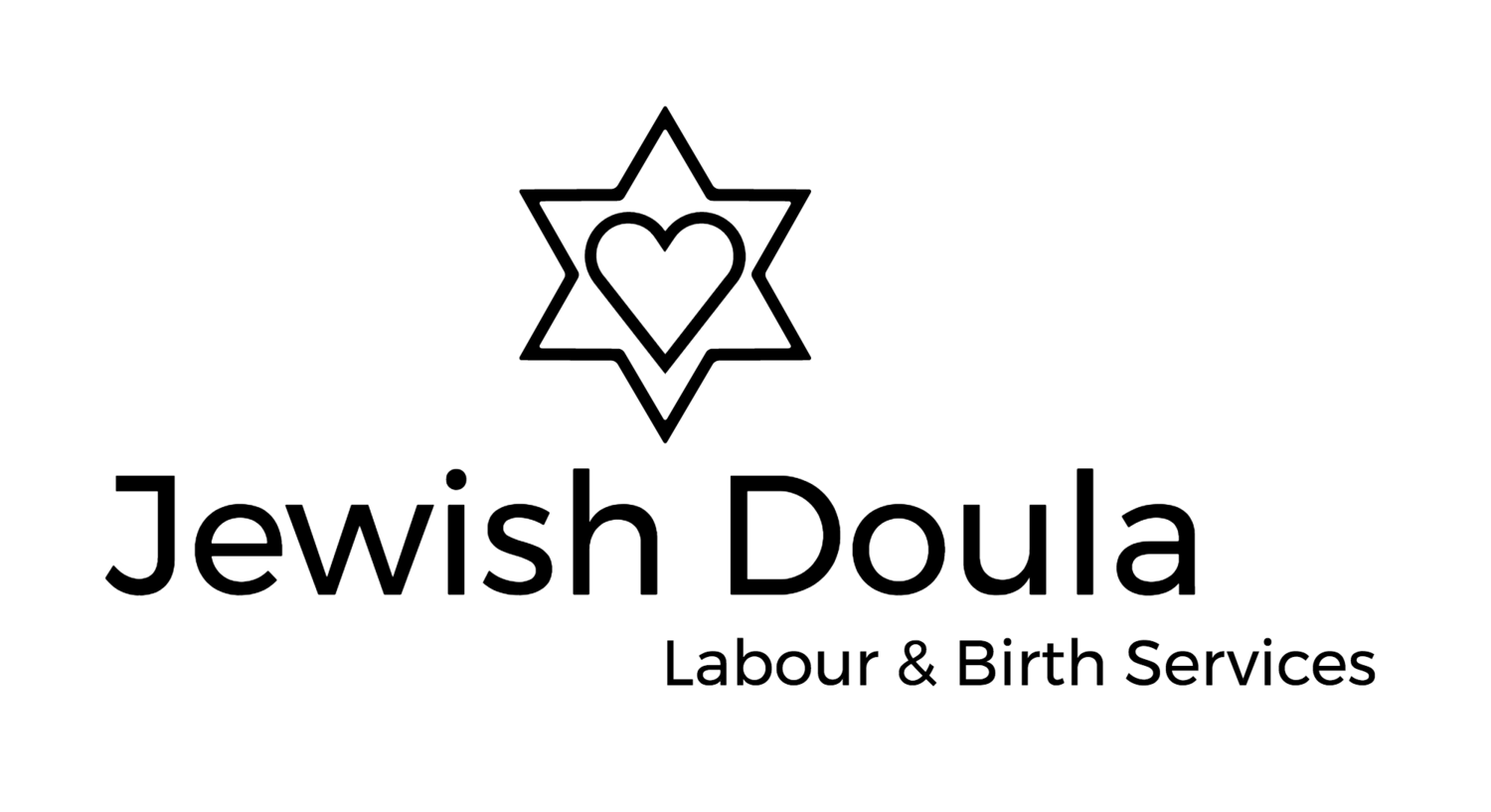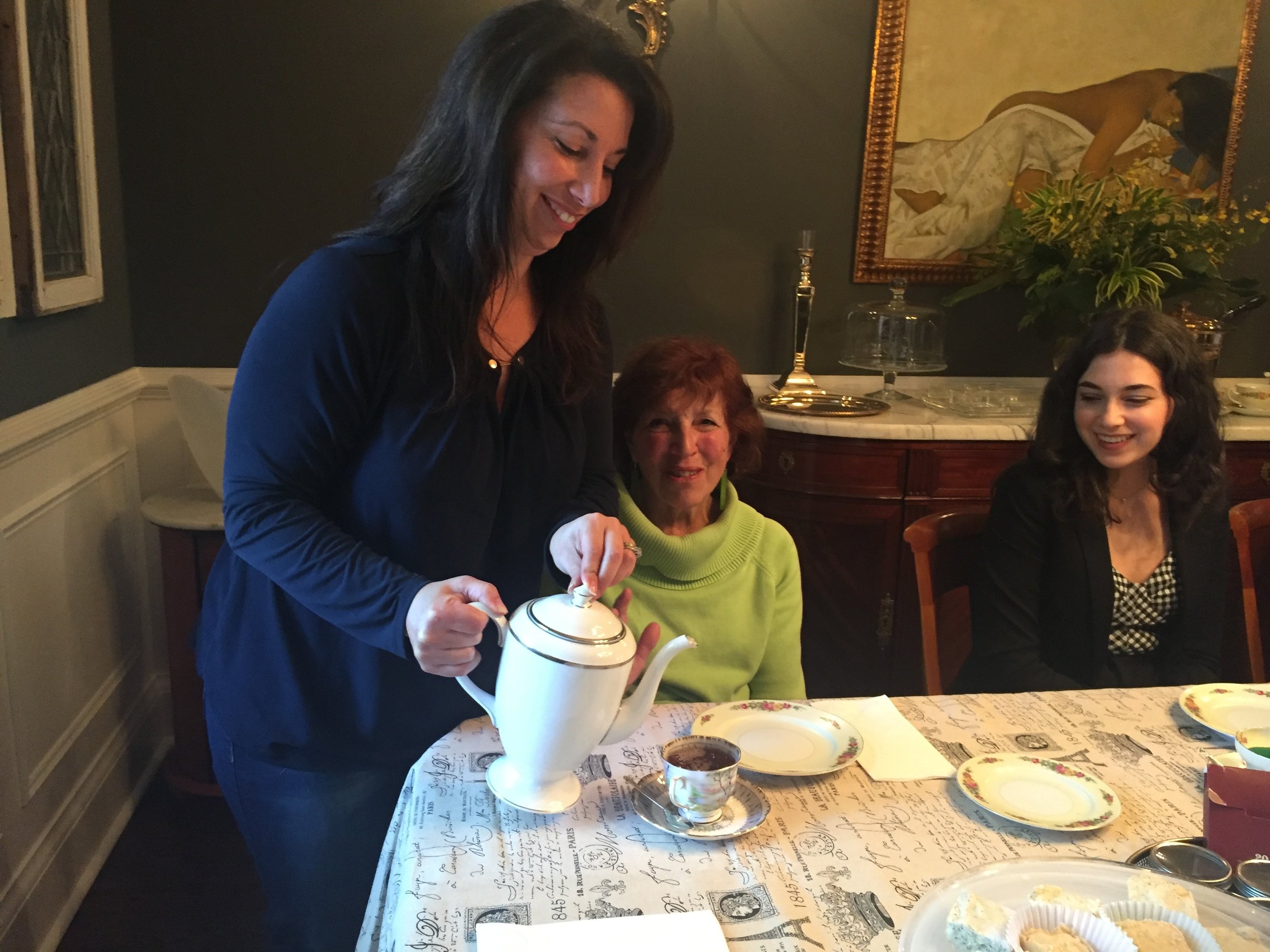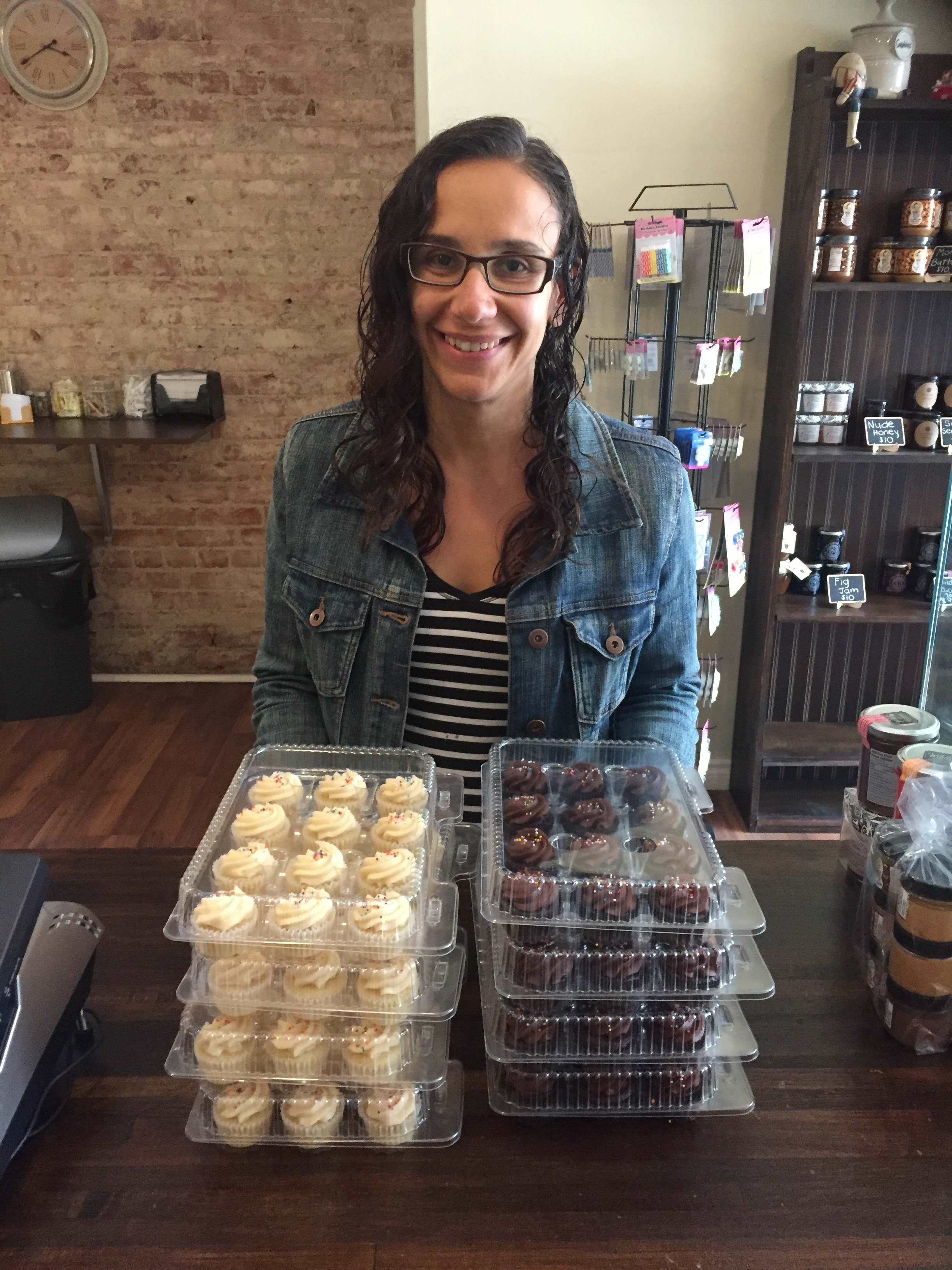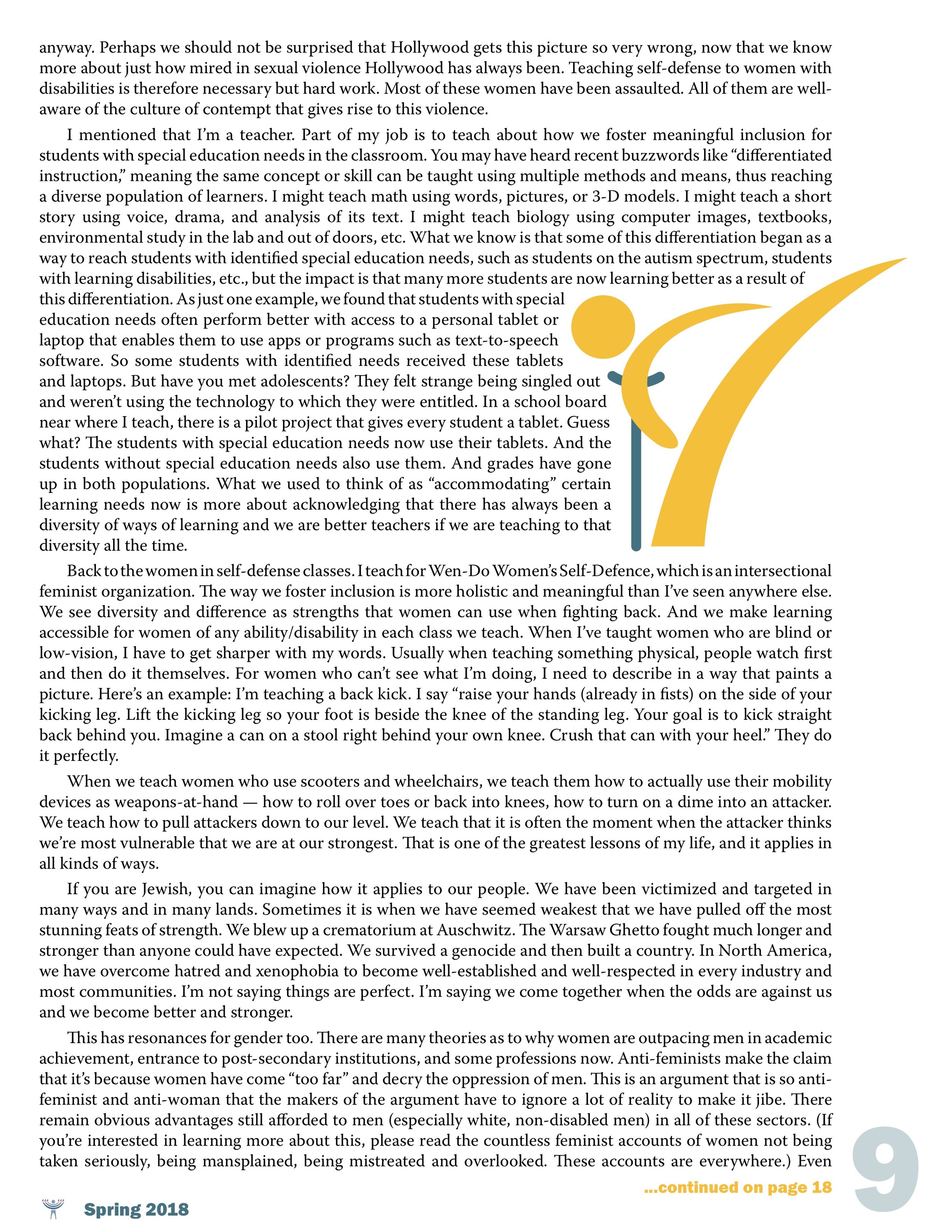(Note: this commentary was part of our High Holiday service and followed a reading of the biblical David and Goliath story)
A little later in this service we will consider Hillel’s words: “If I am not for myself, who will be? If I am only for myself, then what am I? And if not now, when?” This is not only an oft-quoted line from Jewish wisdom, but it is, in my view, crucial to the whole Jewish experience. It is certainly crucial to the story of David and Goliath. David makes a name for himself here. He is drawn to action, to battle, leaving his defenseless sheep with an unknown keeper and throwing himself into the fray. We think of him as heroic because we know the end of the story. But what if he had failed, would his actions still have been considered heroic or would they have been considered foolish? We can never know the outcome of our choices fully and, so, it begs the question… does the Hebrew Bible tell us to take risks, even when that means putting ourselves and others in danger? Is self-sacrifice an honour, Jewishly? Sometimes yes, sometimes no. We are told in Talmud that each life is precious; that to save a life is as though one has saved the whole world. Perhaps we can extrapolate then that to end one life is as though one has ended the whole world. Would that have applied to David, had he died? Does it apply to Goliath? How do we determine whose lives are worth sacrificing and whose worth saving? And what of the sheep? Did they deserve their abandonment? In the long view of Jewish life through the ages, which of these characters best represents the Jewish people? The sheep? Eliab, who admonishes David for leaving them? David himself? What about Goliath?
The Hebrew Bible is always complex but in this story it is uncomplicated in its notion of right and wrong. Three times, David says that the “Philistine,” Goliath, defies the “armies of the living God.” The text tells us that because Yahweh is on the side of Israel, Israel can’t lose and David, even as a youth untrained in the art of war, will prevail. And he does. There is a lovely circularity to the logic: God is on David’s side so he must win; David wins, thus proving that God is on his side. Clean and simple. Note, however, that David’s own actions are what lead to his victory. This is not divine intervention; for David must first convince Saul that he can fight, which he does through the force of his argument, and then he must defeat the hulking Goliath himself, which he does with cleverness and the force of his arm.
Humanists lack the certainty of believing that what we do is pre-ordained and divinely justified. It must be nice to live a life with that kind of conviction! What is not so nice is when that kind of conviction leads to war and suffering. For we know that plenty of people from all religions have felt divinely justified to enter into battle with their enemies. It turns out it is tough to tell who is defying the “army of a living God” when each side believes they are religiously compelled to defeat the other. Humanists therefore must find our conviction from another source; from within.
I woke up the morning of November 9th 2016, in what I would call a state of depression. I barely left my bed for two days. I found it difficult to summon the strength to care for my children. I phoned it in at work a little (yes, even rabbis do that on occasion). The results of the American election were in and, I admit, I was shocked. I hadn’t anticipated the result. Mostly, my belief in humanity was shaken. I could not believe, I still find it difficult to believe, that millions and millions of people voted for someone who was a known and proud racist, contemptuous of women and people with disabilities, someone who exemplifies greed and indifference to suffering. I understand the many reasons for this and have no desire to rehearse them here. I am not talking about the failings of a political system, or party, or a desire for change, or the hurt, misunderstood feelings of the masses. I know all that. You know all that. I’m not talking here about what we know. I’m talking about what we feel. And in those days after the election, I felt truly bereft. I had lost my faith in people, the only faith I ever had.
So what is a Humanist to do if she no longer has faith in humans? This was the source of my depression, and I call it depression with the fullness of understanding of the seriousness of the term. I felt shaken to my foundation and I no longer saw the point in continuing my work. Why lead a Humanist community when humanity is unsalvageable? Why continue pursuing, through community, the ideals of tzedakah, justice, when justice so rarely wins out. I worried, I still worry, for the future my children will inherit, with food and climate insecurity being at the top of a long list of seemingly insurmountable problems. And I couldn’t shake the feeling of pointlessness. Why bother?
I imagine this is what it feels like to lose one’s faith in God. Some of you may have been through something similar. It is a total paradigm shift; the world is not as it was and never will be again. So, now what?
I couldn’t stay in bed forever. At a certain point, we all must face our reality and decide what to do next. I am so grateful to have been given a good Humanistic Jewish education and to be in this community because I honestly don’t know how I would have gotten out of my funk without both. Firstly, I know from my Humanistic Jewish education, from Sunday school to youth group to adult education and, yes, to rabbinic school, that my Jewish history and ancestry compels me to keep fighting, even when things are tough. In fact, it is especially when things are tough that we toughen up ourselves. We keep on fighting. It’s the lesson from our biblical narratives like Moses, and, yes, like David versus Goliath. It is also the lesson of Jews who found their way through the generations of exile and violence. We would no longer be a people if we folded when the going got tough. And so much the more so for a Jewish Humanist. I am not waiting around for any deity to save me, my people, my fellow peoples. So who am I waiting for? We don’t expect to be saved; we expect to save ourselves.
The day after the election I had a tearful conversation with Rabbi Adam Chalom, Dean of the rabbinic school I attended and a rabbi in Chicago. Some of you had a chance to learn with him this past spring. One of the things he said was: “you’re strong. Don’t forget it.” And he was right. And so now I want to say the same to all of you. Many of you are struggling with the political realities of our time. Many of us also have our personal struggles, be they sick or struggling family members, our own health problems, financial pressures, loneliness, and more. But you are here today, which signals to me and all of us here that you believe that things can be better in the year to come. If you had lost that belief, shaken though it sometimes is, there would be no reason to mark the Jewish new year. So, you came. You sit here waiting to be inspired by someone who struggles too, someone who is just like you in their humanity and in their hope. And I say to you: “You are strong. Don’t forget it.”
The founder of our movement, Rabbi Sherwin Wine, called Humanistic Jews to lead “lives of courage.”
For it takes great courage to go against trends that are harmful and destructive. I like the idea of a life of courage precisely because it does not signify an easy life, for there can be no such thing as a life that is both easy and meaningful. Life is full of struggles and that is the way it should be. We are made who we are by how we find strength and courage in the face of adversity and fear. There is no courage without fear; there is no strength without hardship. And you are strong, don’t forget it.
I remember in those November days we Oraynuniks got together in the home of Roby and Jim Sadler. Roby, our office manager, is probably the one person in this room you’ve all connected with at some point. It’s fitting for her to host an evening of shared concern and connection. We went around in a circle each discussing our concerns and then, I believe, I heard a shift to a discussion of courage. Alone we all had our individual heartaches but together we were emboldened. We knew we would face whatever was to come as a community and, as important, a community that believed in humanity and in humanity’s capacity for justice. So I say again, I am really grateful to you, Oraynu, because although it is my job to inspire you, to offer support, to lift you up when you need it, you do the same for me.
What does any of this have to do with David and Goliath? I’m not saying Trump is Goliath although, with the portrayal of someone who has become a giant in the eyes of “his people” but who is galumphing and generally not so smart, it’s tempting. Forgive my party politics from up on the bimah – I couldn’t resist. What I am saying is that this is a political and historical moment that, I believe, calls us to be David. Our people, Jews, and our people, the people in our world more broadly, need heroes now. We do not have to be the boldest and the best, for David isn’t. We do not have to be experts, for David isn’t. We do not have to be armed with swords or the best tools for whatever our particular battle is, for David isn’t. We have to be willing to fight the good fight.
Here’s where we diverge from David. The slingshot is a nice device the writers of this section of Tanakh included. It is reminiscent of both childhood innocence and crude conditions; again, David’s victory is pre-ordained because he has the right God on his side.
Any of us could wield a slingshot, and Jews throughout the ages have looked to this story for inspiration particularly because we have so often felt outgunned and outnumbered. We believe ourselves to be people who rely on our wits and use whatever is available to us. But are we also the people who do what David did next? Goliath is dead, must David take Goliath’s own sword and behead him? Must the children of Israel plunder the camp of the Philistines? Is this still right?
Here is my concern for the Jewish people. We believe ourselves to be David. But at some point, I worry we become more like the other children of Israel who plunder the camp. I worry that, at a certain point, we become Goliath. When any of us attains societal power and privilege, do we lose the ability to care about those we may step on to get where we’re going?
It is difficult for me to read the narrative of David and Goliath and not think of Israel, the modern state. Is Israel David? Is it Goliath? Well, yes and yes. And for us here in the diaspora too – whether we vote for those we perceive as “strong,” knowing others will be hurt, whether we turn a blind eye to the problems of racism, poverty, gender discrimination, environmental degradation because they are too big for us to tackle alone and, anyway, truly tackling these problems might mean giving something up. Whether we think of being Jewish as a site of victimhood or a site of strength. Whether we tune out news and politics because they can be depressing and we have a life to lead here. I’d say we are all guilty of becoming a little too much like Goliath, a little less like David. And, or, a little too much like the David who is willing to leave his sheep and head into the fray. We can sometimes forget who we are, what we are here to do, and why it matters.
We live in tough times. The world turns on, of course, and we know the problems go on too. I have been so proud of how our community has risen up against Islamophobia and the continued ill-treatment of Indigenous Canadians. How we have been engaged in deep ecological experiences, and advocacy. How we are renewing our sense of vigour around volunteerism and helping others. And how we take seriously the need to care for one another in our community in these tough times.
We are Humanists… we answer Hillel: we are decidedly and avowedly not only for ourselves, but we are for ourselves. And we know that the time for courage, the time for strength, the time to act is now.
I wish for you continued hope and strength in the year 5778. I wish for all of us to know joy and peace. I wish for our community and the other communities of which we are all part to be sources of support and inspiration. I wish for us laughter and happiness. Above all, my intention and hope, for this particular year is that we find courage where there is fear and we find and remember our strength. We are strong. Let’s not forget it.




















